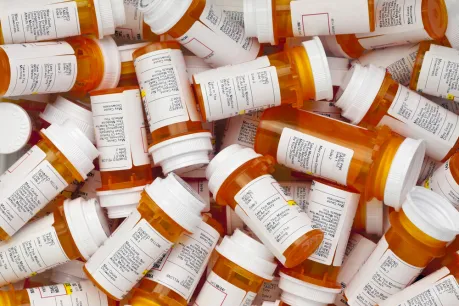When Doctors Fail to Check for Dangerous Drug Interactions

Injured?
When you’re prescribed medication, the last thing you expect is to be harmed by it, especially when multiple drugs are involved. You trust that your doctor, pharmacist, or healthcare provider has reviewed your medications carefully to ensure they’re safe to take together.
But when that doesn’t happen, and the drugs you’ve been prescribed interact in harmful ways, the consequences can be severe.
In legal terms, this is known as failure to check for drug interactions, and it can constitute medical negligence. These kinds of errors can lead to dangerous side effects, lasting health complications, or even death.
If this has happened to you or someone you love, you may have grounds to pursue a malpractice claim.
What Is a Drug Interaction?
A drug interaction occurs when two or more medications react negatively with each other inside your body. In some cases, the drugs may cancel each other out, rendering your treatment ineffective. In other cases, the medications may amplify each other’s effects, leading to potentially dangerous or toxic outcomes.
Either way, drug interactions put your health at serious risk.
Doctors and pharmacists are trained to identify and prevent these dangerous combinations. Most healthcare systems have computerized tools specifically designed to flag potential interactions. However, these tools are only effective if the professionals using them are vigilant and attentive.
How These Errors Slip Through the Cracks
Drug interaction mistakes don’t happen by chance. They usually stem from preventable failures, like rushed decisions, poor communication, or simple negligence.
Sometimes, a doctor may prescribe a new medication without reviewing your current medications. At other times, a specialist may fail to share records with your primary care provider. Pharmacists may fill prescriptions without checking your medical history, or important updates to your chart might never be made.
In each of these scenarios, the system breaks down, and it’s the patient who pays the price.
The one thing these errors have in common? They’re almost always avoidable. And that’s exactly why accountability matters.
Possible Effects of Failing to Catch a Drug Interaction
When drug interactions are overlooked, the consequences can range from uncomfortable to life-threatening. In the best-case scenario, patients may experience:
- Dizziness
- Nausea
- Fatigue
- Mental confusion
But in more severe cases, the effects can escalate quickly and include:
- Organ failure
- Cardiac complications
- Seizures
- Severe allergic reactions
- Death
Whether mild or catastrophic, these outcomes are often preventable. And when they result from a provider’s failure to check for interactions, they may be grounds for legal action.
How to Tell Something’s Wrong With Your Medication
It’s not always obvious that a drug interaction is to blame for how you’re feeling. But if your symptoms started after beginning a new medication, it’s worth investigating.
You should take note if:
- You experience unexpected side effects or strange physical reactions.
- Your condition suddenly gets worse without explanation.
- Another provider tells you the medications you’re taking shouldn’t be combined.
When something feels off, trust your instincts and don’t hesitate to ask questions. Catching a drug interaction early could protect your health and strengthen your potential legal case.
What to Do If You’ve Been Harmed by a Drug Interaction
Your health comes first. If you’re still taking the medication, contact your doctor or pharmacist immediately. If you’ve already received treatment for the reaction, request copies of your medical records; they can help show what you were prescribed and whether any known risks were overlooked.
Be sure to hold on to anything related to the medication, including:
- Prescription bottles
- Pharmacy receipts
- Discharge papers or treatment notes
Also, write down when you started the medication, what symptoms you experienced, and how your condition changed. That kind of timeline can make a major difference when building a legal case.
Ultimately, consult with an attorney who specializes in medical negligence. If a provider failed to catch a dangerous drug interaction and you were harmed, you may be entitled to compensation.
Potential Compensation
If your claim is successful, you could recover damages for:
- Emergency and follow-up medical care
- Lost wages or reduced earning ability
- Pain and suffering
- Long-term health complications
- Wrongful death, if a loved one passed away due to an error
You Have the Right to Take Action
You deserve answers and accountability. Even if you’re not sure exactly who made the mistake, that doesn’t mean you’re out of options.
Morgan & Morgan is America’s largest injury firm, with the resources and experience to investigate prescription error cases and determine whether negligence played a role in your harm.
If you think a preventable drug interaction caused your injuries or a loved one’s death, fill out our free case evaluation form today. You may be entitled to compensation, and you pay nothing unless we win.

We've got your back
Injured?
Not sure what to do next?
We'll guide you through everything you need to know.
